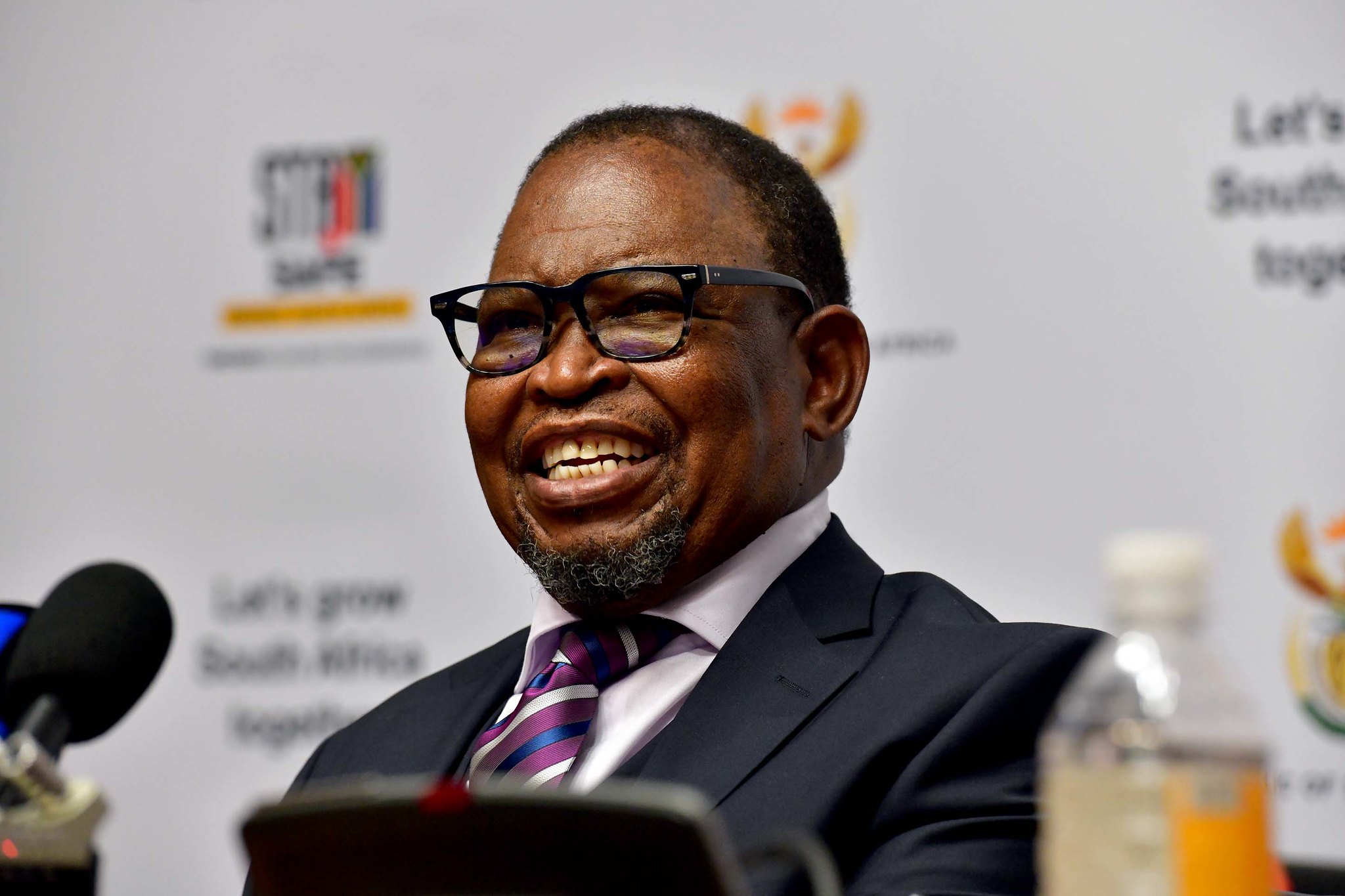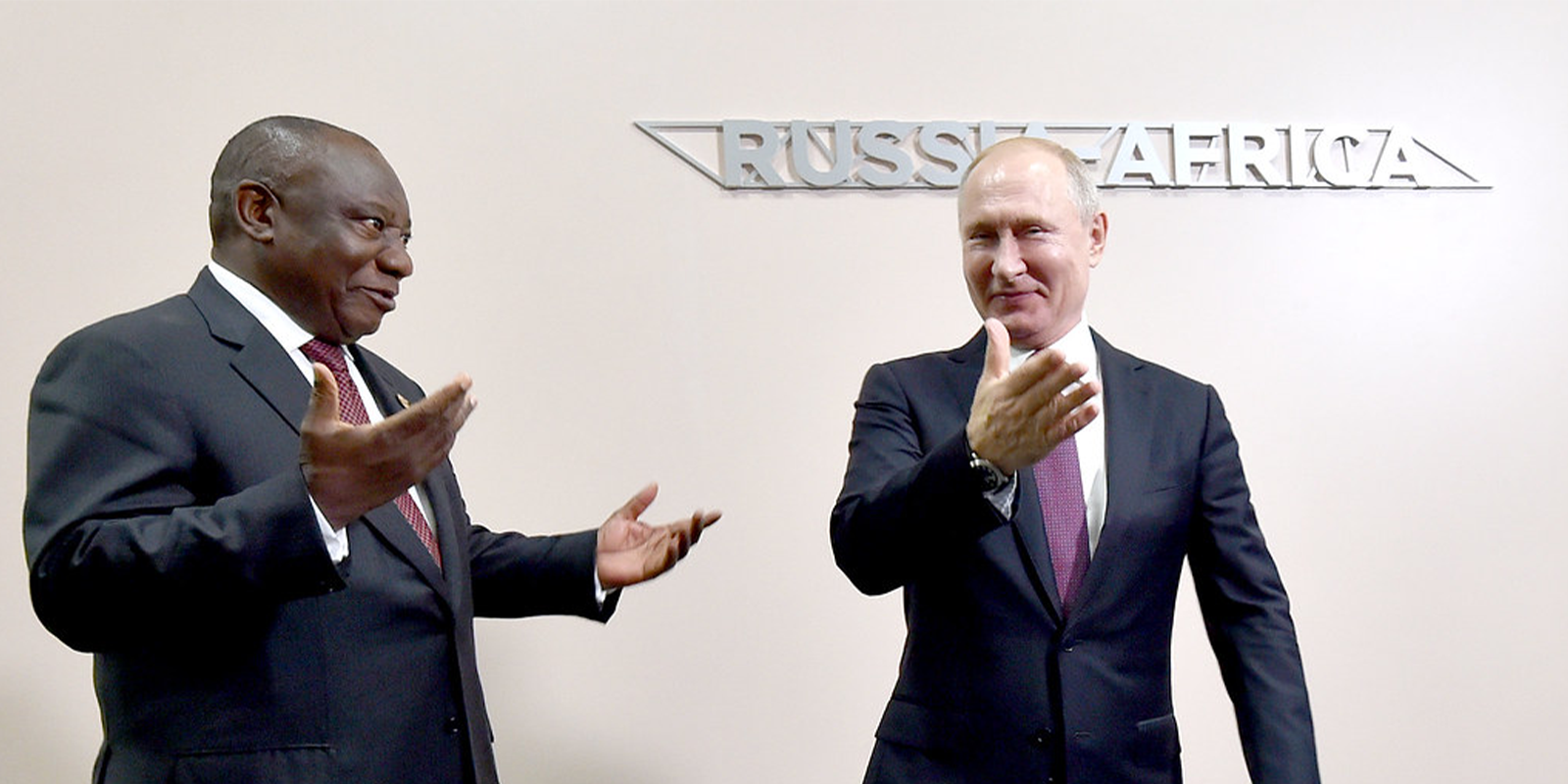News
Treasury has been bent to Ramaphosa’s Populist Agenda — the Consequences will be Dire
The hard numbers won’t go away. Instead of shrinking, they will grow and unless there is a dramatic change in direction, they will overwhelm the fiscus. The private sector has been vocal in its warnings. Eventually, the country will run out of other people’s money.

Former Research Director, The Brenthurst Foundation

Former Director, The Brenthurst Foundation

Governance is not a spectator sport. It requires identifying moments of crisis and acting swiftly and convincingly to deal with them.
One such moment has come and gone with little more than a murmur from Finance Minister Enoch Godongwana as he delivered the Medium-Term Budget Policy Statement.
Instead of acting decisively, he delayed and prevaricated, further contributing to the populist drift which is undermining confidence in the government’s ability to make and execute tough decisions.
The problem is plain enough and, like a good spectator, Godongwana delivered them to the nation in an appropriately sombre tone. Tax revenues are down as South Africa’s corporate sector continues to choke on abysmal energy provision and failing logistics while policy uncertainty and new regulations choke new investment.
On top of this, the government buckled to public service unions by awarding an unbudgeted salary increase, the consequences of which are a R24-billion hit this year, compounding to R74-billion over the medium term.
And, because of these failings, borrowing is rising. According to Godongwana, the government will borrow a staggering R553-billion a year over the medium term. Gross debt is set to rise from R4.8-trillion to R5.2-trillion over the next financial year, punching through the R6-trillion level by 2025/26.
Debt service costs will rise to 22.1% of revenue by 2026/27.
Annual interest on debt will amount to R385.9-billion. That means the country will be paying R1.057-billion a day to creditors, or R17 a day for each of South Africa’s 62 million citizens. While the President is quick to laud how the social grants system has helped to stave off the worst effects of poverty — even though it is failing to graduate people out of poverty altogether — the cost of this social protection is just R10 per citizen per day.
Essentially, South Africa’s extremely poor and vulnerable are subsiding the spending habits of the civil service.
The government sits tight
You would think it would be all hands to the pump as South Africa takes on water with a fiscal cliff — or perhaps waterfall — looming.
Instead, the government has decided to sit tight, announcing no dramatic new cost-cutting for the state and holding on to populist policies that are bleeding the fiscus dry.
Godongwana said, “Action is being taken to review and reconfigure the structure and size of the state, in line with the President’s commitment in the 2023 State of the Nation Address.
“A joint plan to review government departments, entities and programmes over the next three years is being prepared.”
Sorry sir, but the old “review” mirror trick doesn’t cut it any more. The State of the Nation Address was made in February; it is now October. The review should be long over and we should be hearing about the actions that have been implemented and their results.
But cutting spending on the civil service means offending the hundreds of thousands of comrades who have been deployed there, many without the requisite qualifications and with no hope of landing an equivalent job in the private sector, which does not have the luxury of carrying passengers. The Zondo Commission spelt out clearly how poisonous cadre deployment has been, but President Cyril Ramaphosa and the ANC elite have continued to defend it.
A “committee to investigate” just does not cut it. Nor does this: “We propose a strategy of spending adjustments based on policy priorities, and a reconfiguration and rationalisation of the state, which includes closing or merging ineffective entities and programmes, and enhancing the complementarity of its functions.”
Each of these “ineffective entities and programmes” is an income opportunity for a cadre and these turkeys will never vote for Christmas.
Here’s another rhetorical gem: “We also consider that additional measures to anchor fiscal policy and maintain confidence need to be investigated. Work is under way in this regard and an update will be provided at the time of the Budget Review.” Translation: “Some guys are going to drag themselves to meetings where they will postpone decisions on the problem.”
Godongwana’s plans stymied
You do have to feel some sympathy for Godongwana. A month and a bit ago, probably while he was finalising this speech and digesting the terrible numbers, he tried to act.
The Treasury wrote a letter to all levels of government, ordering the suspension of hiring and of the awarding of procurement contracts for all infrastructure projects.
No sooner had he spoken than Ramaphosa — acting with rare speed — convened a meeting on a wine farm outside Stellenbosch with Godongwana, Reserve Bank Governor Lesetja Kganyago and other Treasury officials to head this project off at the pass.

A week later, he had to suffer a humiliating put-down by a junior as Minister in the Presidency Khumbudzo Ntshavheni announced after a Cabinet meeting that guidelines would be issued to “clarify the unintended misunderstanding” arising from the cost-containment letter. Godongwana got the memo: No finance minister can stand in the way of jobs-for-pals and, horror of horrors, stop the flood of money from procurement.
Herein lies a reminder of the key structural problem facing the African National Congress and its alliance partners. Even when it knows what it has to do to reform the country, the interests of its constituents won’t allow for it to occur. And so the country consistently fails to match actions with rhetoric, whether this is over the concessioning of rail and ports, reducing the wage bill, or making it easier for the private sector to fire (and thus hire).
But the hard numbers won’t go away. Instead of shrinking, they will grow and unless there is a dramatic change in direction, they will overwhelm the fiscus. The private sector has been vocal in its warnings. Eventually, the country will run out of other people’s money.
In the words of Busa’s CEO, Cas Coovadia, quoted in Business Day, clear measures are needed to cut spending “which has to include deep and substantial cuts in spending on non-essential and non-productive programmes, the shelving of unfunded prestige projects and linking future public sector wage increases to inflation”.
Coovadia, a former head of the Banking Association of SA and of the International Banking Federation, is probably more acutely aware of the looming fiscal crisis than most.
“These measures must have the support of the rest of the Cabinet, which must speak with one voice to boost public confidence in the government’s commitment to responsible management of the economy,” he said.
“SA has a growing tax revenue shortfall, in part because of weak household finances, low business confidence, low investment, lower global commodity prices and a weak rand.”
Ramaphosa appears to disagree. He thinks a committee of cadres can talk their way out of this one. Whether they can depends on what voters think and do.
This article originally appeared on the Daily Maverick.
Photo: Government ZA Flickr

